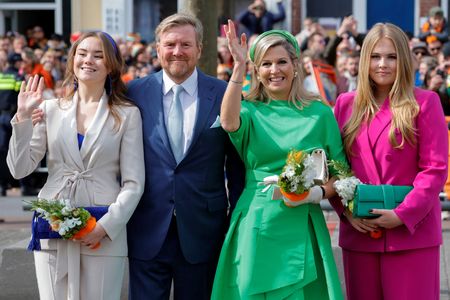 1
1 1
1
ROTTERDAM (Reuters) – Millions of Dutch revellers took to the streets on Thursday to celebrate King’s Day festivities, dressing in orange and enjoying open-air markets – even as trust in the man at the centre of the nationwide party sinks to a low ebb.
King Willem-Alexander, whose 56th birthday is the official reason for the holiday, isn’t nearly as popular as he once was, an annual poll by research company Ipsos showed this week, after vacationing in Greece during the pandemic and flouting social-distancing rules.
Trust in the country’s first king in more than 120 years, who succeeded his mother Queen Beatrix 10 years ago, has fallen to 46% this year, the poll showed, while support for the monarchy as a whole slipped to 55%.
These numbers had held firm at around 75% until the start of the COVID-19 pandemic in 2020.
But Willem-Alexander still drew tens of thousands of fans, dressed in orange in honour of the ruling House of Orange, to Rotterdam on Thursday as he attended celebrations with his more popular wife Queen Maxima and two of their three daughters.
Elsewhere, people flocked to the traditional “free markets”, where people build makeshift stalls or lay out carpets to sell all kinds of clothes, toys, furniture and other possessions they no longer want or need for a few cents or euros.
The historic centres of Amsterdam, Utrecht and The Hague have been filled with thousands of people since late on Wednesday as King’s Eve parties kicked off the festivities.
Prime Minister Mark Rutte on Wednesday said the royal family’s falling popularity did not worry him, as he praised their role in “unifying” the country.
“Support will always vary, but that is no reason for concern”, he said. “And an approval of 55%? Come on! I believe I’m at 20%.”
(Reporting by Bart Meijer; Editing by Hugh Lawson)